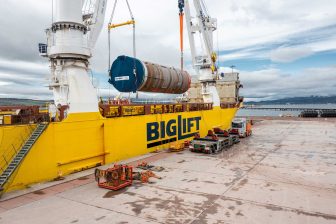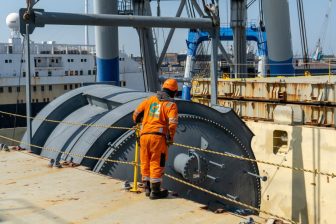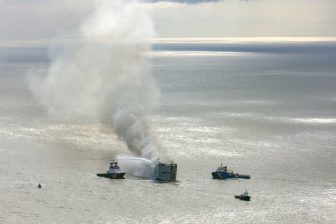
Höegh Autoliners places order for zero carbon ready PCTCs
Höegh Autoliners is pushing ahead with its green transition with an order for multi-fuel and zero carbon ready Aurora vessels. The company has ordered four fixed vessels at China Merchants Heavy Industry (CMHI) and has two options for a total of eight additional vessels in the future.
Under the terms of the contract, the first two vessels will be delivered in the second half of 2024 and the next two vessels in the first half of 2025. The Aurora class will have DNV’s ammonia and methanol ready notation. The vessel will be the first in the PCTC segment to operate on zero carbon ammonia.
Together with the capacity to carry up to 9,100 cars, the industry leading Aurora class will be the world’s largest and most sustainable car carriers. The vessels are designed to transport the cargo of the future. The vessel’s strengthened decks and enhanced internal ramp systems enable Electric Vehicles on all decks and provides more flexibility for heavier project cargo.
Leif O. Høegh, Höegh Autoliners Chair said, “The collaboration with China Merchants Industry represents a breakthrough in reaching our ambitious net zero emissions target by 2040. The innovative design of the zero carbon ready Aurora class will enable our customers to decarbonise their supply chain. Together with CMHI we are leading the way towards a net zero emissions future for our industry.”

The transformational newbuilding program will accelerate Höegh Autoliners’ green transition, expand the fleet, and deliver market leading low-to-zero emission transportation services to its customers. The vessel’s multi-fuel engine can run on marine gas oil (MGO) and LNG. With modifications, the vessel can transition to use future zero carbon fuels including ammonia or methanol.




